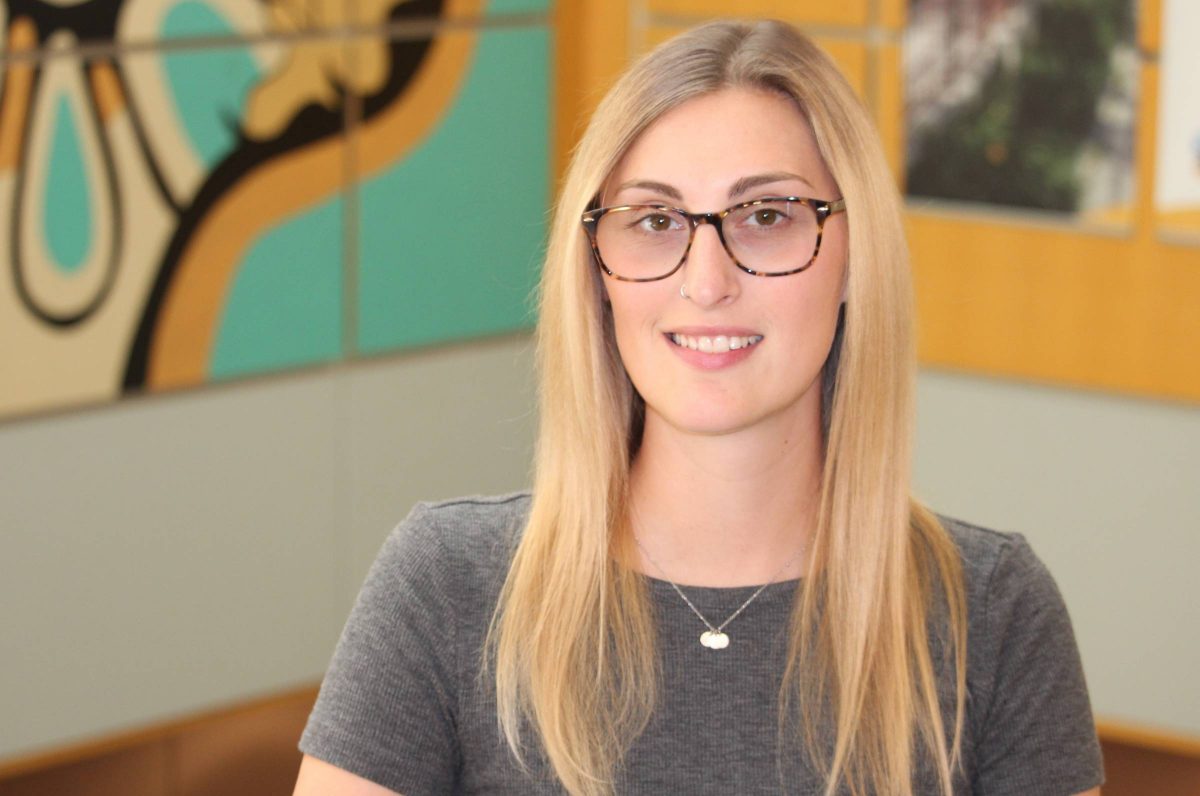
Rady grad student profile: Ariel Wilcox looks to improve rural health-care system
Ariel Wilcox spent over a decade working as a frontline nurse in rural Manitoba prior to the COVID pandemic. After taking a maternity leave during the pandemic’s third wave, she was unsure that she wanted to return.
Instead, she enrolled in the College of Nursing’s master’s program, with hopes to improve the province’s rural health-care system.
Wilcox currently lives in Treherne, Man., about 120 kilometers southwest of Winnipeg, and just north of Cypress River, where she grew up.
UM Today spoke with Wilcox about her decision to return to UM and her thesis.
What got you interested in nursing?
Helping people has always been part of my life. I’m from a farm background, so it’s kind of in my blood and innate. I went into nursing on a bit of a whim. I was in the second year of my science undergrad degree, but I wasn’t enjoying it. So, then I went into nursing and I loved it, and I stayed. It might sound cheesy, but I sometimes think nursing chose me more than I chose it at the beginning, and now it’s the other way around.
You received $20,000 in funding from Research Manitoba for your project titled Rural Nurse Leader Perceptions of Practice Environment Empowerment Structures. How does it feel to be recognized in this way?
Being awarded this funding has been an honour. To be recognized by Research Manitoba for my nursing research and bringing awareness to Manitoba’s rural health care is truly fulfilling. It reassures me that I am where I am supposed to be.
Can you describe your research and why you see it as important?
I’m aiming to investigate rural nursing leaders, to understand their organizational structures. The number of nurses in rural Manitoba is always decreasing due to workplace stress, dissatisfaction and those kinds of issues. Empowered nursing leadership is important to improve our current work environments. Our leaders play a significant role in creating those positive work environments, which in turn has an impact on rural nursing retention and recruitment and ultimately quality of patient care.
I’m hoping this research will provide some insight into possible systemic changes that need to occur and provide our nursing leaders with support. We need to have people in leadership positions who are thriving and inspiring other nurses, especially our new graduates and older nurses who are retiring. At the end of the day, nurses love their jobs. In my career, I have yet to meet a nurse who is doing their job for the money. They are nursing because they love people and want to see them thrive and survive.
What got you interested in this area of research?
I’ve been a nurse for about 10 years now. COVID complicated a lot of things. After my maternity leave, I knew in my soul that I didn’t want to go back and provide suboptimal care to patients. I was burnt out during the pandemic and had some personal health issues. I couldn’t keep working in the environment the way it was, and I wanted to hopefully elicit positive systemic change. I felt that the best way I could do that was to go back to graduate school, apply myself in an educational context and dedicate myself to facilitate positive changes in our health-care system in Manitoba, more specifically for our rural residents. They are more challenged accessing the same health care as their urban counterparts.
What is next for you?
I’m not sure yet. Coming into this, I was set on getting my master’s and then hopefully get into some form of policy development or workforce employment. But there has been some discussion with Dr. Judith Scanlan, my advisor, about going the PhD route with my thesis. That is intriguing to me, and I haven’t closed the book on that opportunity.
This Q&A is part of a series on UM Today featuring Rady Faculty of Health Sciences graduate students. You can find more grad student profiles here: #Radygradstudents.






